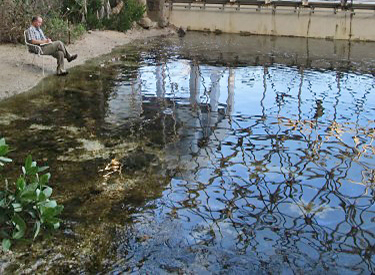Biosphere 2, Poetry, and the Anthropocene
Series Introduction and Guest Editorial

A POET SITS on a beach and writes. The wave machine churns.
Outside the glass, the desert. A group of tourists exits the rainforest and gazes down at the beach from the savanna.
Some of them arrived after seeing the billboards between Phoenix and Tucson. Where science lives. People lived here too, eight of them sealed under glass in the early 1990s. Most visitors ask about that. Were they practicing for Mars? I heard they snuck pizza in. Did they have sex?
Another billboard proclaims One of Time-Life Book’s 50 Must See Wonders of the World. It’s sublime, something out of science fiction, a Buckminster Fuller-like dome on the western flank of the Santa Catalinas north of Tucson. The four acres above-ground house multiple biomes and a human habitat. The two acres below—the technosphere including the lung—keep Biosphere 2 running, a metaphor for the ecosystem services that support Biosphere 1, a.k.a. the Earth.
After that first “mission,” dubbed the forerunner of reality television for the press that was camped outside and arguably as much a social science experiment or art project as a science experiment, evolutionary geneticist John Avise wrote in 1994 in Conservation Biology:
Herein lies the real message from Biosphere 2. It may be fun and even inspirational to dream of colonizing other planets, but the harsh reality is that we have but one home, and it is getting untenably crowded. Whether based on ethical or purely utilitarian considerations, human societies must learn to properly value our Earth, and quickly. Like the astronauts’ views from space, Biosphere 2 should give us a novel perspective and renewed appreciation of Biosphere 1.
Twenty years later, the evidence is clear we haven’t yet learned to value the Earth properly. Climate change and biodiversity loss are among the litany of human-caused environmental crises we face. A group of scientists has proposed a new geologic epoch, the Anthropocene, having roughly started at the Industrial Revolution, to mark the fact that humans have literally written ourselves into the strata and atmosphere of the Earth.
But how does science deal with values?